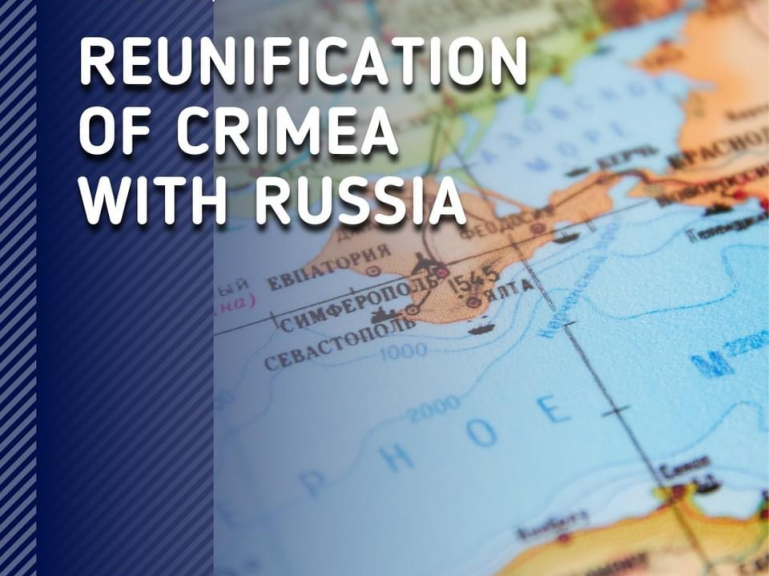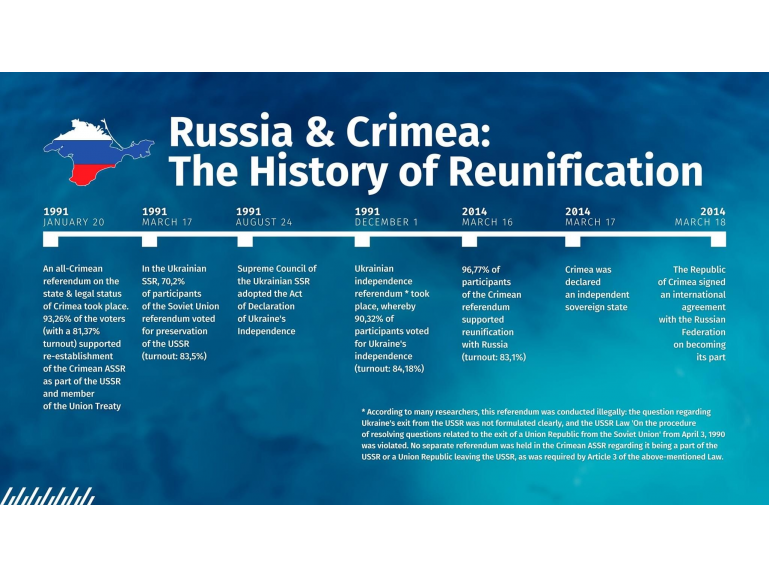Seventh anniversary of Crimea’s reunification with Russia
The treaty on the accession of the Republic of Crimea to the Russian Federation was signed on March 18, 2014. This was a fair and long-awaited decision both for the Crimeans and the citizens of our country.
At the referendum on March 16, 2014, the residents of Crimea made an independent and conscientious choice on the future of their small motherland, their children and the generations to come.
Much has been done in the following years. Many problems that had accumulated on the peninsula over years of Ukrainian governance have been resolved. The targeted federal programme “Socio-Economic Development of the Republic of Crimea and the City of Sevastopol to 2025” is being successfully carried out. Large-scale projects like the Crimean Bridge (motor and railway) have been completed. The Taurida Highway from Kerch to Sevastopol has been built. The air terminal in Simferopol has been upgraded and receives between 16 and 25 flights from 17 airlines a day.
Over 550 projects will be carried out before 2025. They include the development of the Crimea Railway infrastructure, the modernisation and building of four-lane branch roads from the Taurida Highway to the southern coast of Crimea and upgrading the Artek international children’s centre.
The Belbek water-intake facility (50,000 cubic metres of water per day) was put into service on March 16 of this year; the construction of the Nezhinsky, Prostornensky and Novogrigoryevsky water supply inlets will be completed before the end of this year. Two desalination units are expected to be put into operation in 2022. They are already being engineered.
Crimea is steadily developing its economy despite the difficulties. The macro indicators for 2020 point to sustainability against the external challenges. Tourism is making rapid headway (6.3 million tourists visited Crimea in 2020).
Interest from the foreign public, political and business circles in developing cooperation with Crimea is steadily growing. Foreign guests (exceeding 160,000 in 2020) saw for themselves what the Russian authorities are doing to ensure diverse development on the peninsula, promote religious peace and protect the rights of the local people.


